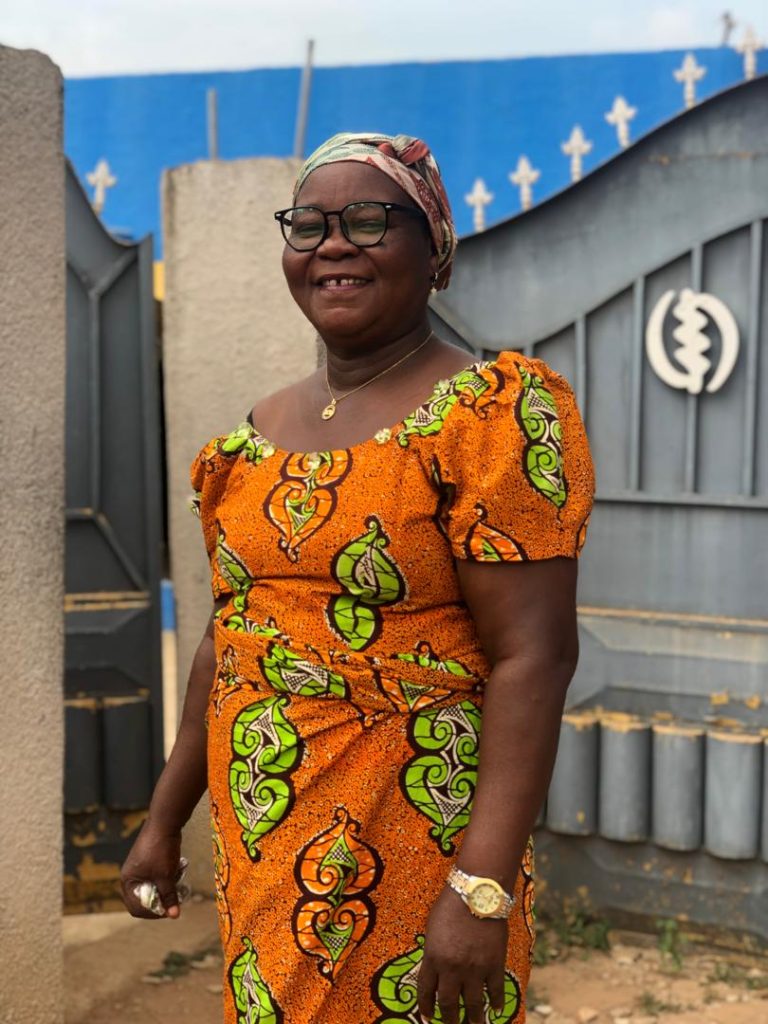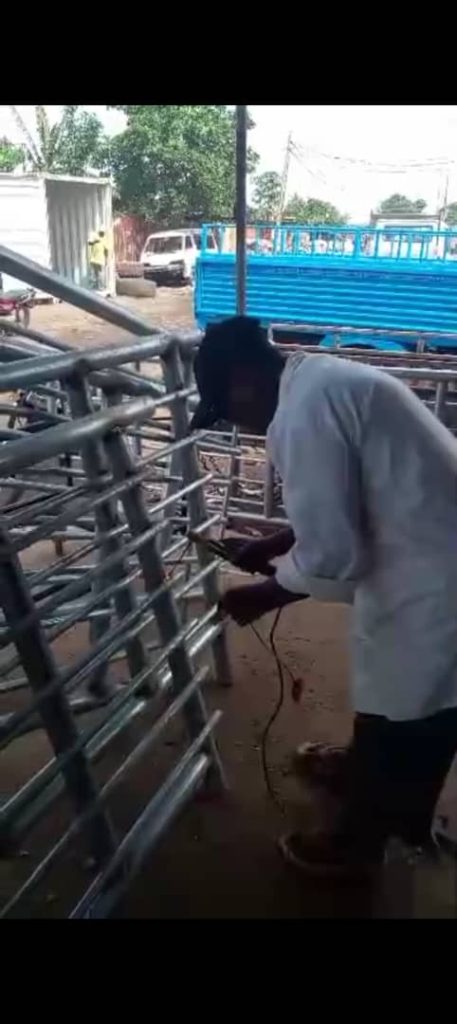A GNA Feature by Bertha Badu-Agyei
Accra, May 12, GNA – The dream of every parent is to see their children advance in life by pursuing careers and professions which are considered appropriate and rewarding. For girls, some jobs have always not been the path to tread at all, such that they are considered jobs for males.
But that is not the story for Ms Lilian Eshun, a mother of three and a grandmother of two lovely kids who opted to become a welder against all odds.
Narrating her story to the GNA, she recalled that, “all the odds were against me, it was seen as an abomination when I opted to become a welder apprentice at Akyem-Oda where we were born and bred, from family to friends, everybody discouraged me.”
Having got the inspiration from her elder brother who was a master craft welder and used to go to his shop after school to help, she decided to pursue a trade apprenticeship after completing the middle school certificate to realise her dream.
Her own brother who was a master craft welder refused to take her as an apprentice because he felt that it was not the best for her considering the risks and the demanding nature of the job requiring physical strength, a reserve for masculinity.
“My brother tried everything to discourage me. One of the concerns he raised was that his eyesight had been affected with the usage of the lights and that with my fair-coloured skin, I needed a soft job to enhance my looks.”
After struggling with all the impediments, Lillian finally enrolled as an apprentice and graduated, but due to the stereotypes attached to a female pursuing that job, she found it difficult to start her own business.

“It was difficult too to be accepted by a master craftsman to work with at the time due to the stereotype, everybody wondered what I could do as a woman in that field.”
Today, after 32 years, of working as a professional master-craft welder, Ms Eshun has her own workshop established through the support of the Vocational Training for Females (VTF) Programme, a not-for-profit organization dedicated to the empowerment of women through the provision of setting up small-scale enterprises for women for sustainable livelihoods.
She said, but for the work, she could not have single-handedly taken care of all her three children through education with some to the university level, saying, “Working as a professional welder is indeed difficult to work considering the risk involved but it has been my lifeline and the source of funds which has enabled me to take care of my children and all my needs”
Over the years, Ms Eshun had trained a lot of people through apprenticeships who have all become well-established in the industry but her only regret is that for all these years, she had not trained any female in that trade because the industry still remained a no-go area for females.
“The obstacles which nearly prevented me from learning this trade remain the same, I have always made the effort to get females to learn the trade and become professional welders like me but to no avail.” She said regrettably.

Asked if she had felt the need to stop working as a professional welder due to the name-calling and the derogatory remarks made about her, she said: “I had no option because it was the only skill and trade, I had learnt which I could rely on to take care of my children.”
Getting up every day and going to a workshop where she has to change over and operate with high-risk equipment like gas cylinders and other materials which has had side effects on her health for the past 32 years has not been an easy task for her, but her fulfilment is the fact that she is able to provide for the needs of her children-food, shelter, medication and education.
As we celebrate Mother’s Day, to recognize the role of mothers in the socio-economic development of the global space, the contribution of the likes of Ms Eshun who are working to break stereotypes of women taking charge of their lives and shaping society through their exemplary lives certainly could not be discounted and she hoped that her story would inspire others to be determined and resilient to pursue their dreams without fear of intimidation or whatsoever.
“I must also say that in spite of the negatives, I have enjoyed the admiration of many people who appreciate the determination of a woman breaking through social barriers to attain her dreams. I am happy that I have made such a mark, and it has been fulfilling in a way.”
It is her wish that society will support such women who are into non-traditional trades in a special way to serve as incentives for more women to blaze the trail.
GNA